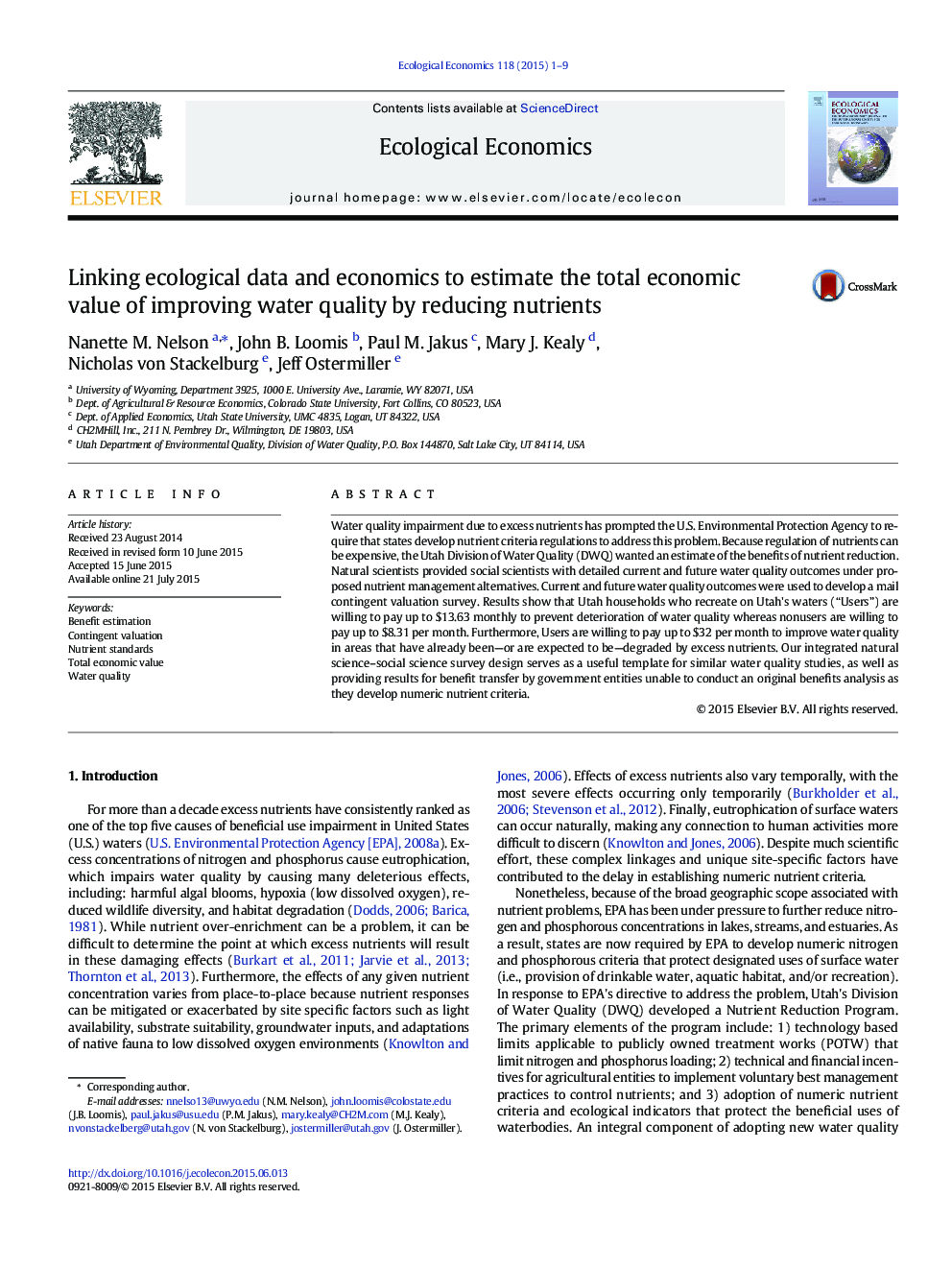| Article ID | Journal | Published Year | Pages | File Type |
|---|---|---|---|---|
| 5049353 | Ecological Economics | 2015 | 9 Pages |
Water quality impairment due to excess nutrients has prompted the U.S. Environmental Protection Agency to require that states develop nutrient criteria regulations to address this problem. Because regulation of nutrients can be expensive, the Utah Division of Water Quality (DWQ) wanted an estimate of the benefits of nutrient reduction. Natural scientists provided social scientists with detailed current and future water quality outcomes under proposed nutrient management alternatives. Current and future water quality outcomes were used to develop a mail contingent valuation survey. Results show that Utah households who recreate on Utah's waters (“Users”) are willing to pay up to $13.63 monthly to prevent deterioration of water quality whereas nonusers are willing to pay up to $8.31 per month. Furthermore, Users are willing to pay up to $32 per month to improve water quality in areas that have already been-or are expected to be-degraded by excess nutrients. Our integrated natural science-social science survey design serves as a useful template for similar water quality studies, as well as providing results for benefit transfer by government entities unable to conduct an original benefits analysis as they develop numeric nutrient criteria.
